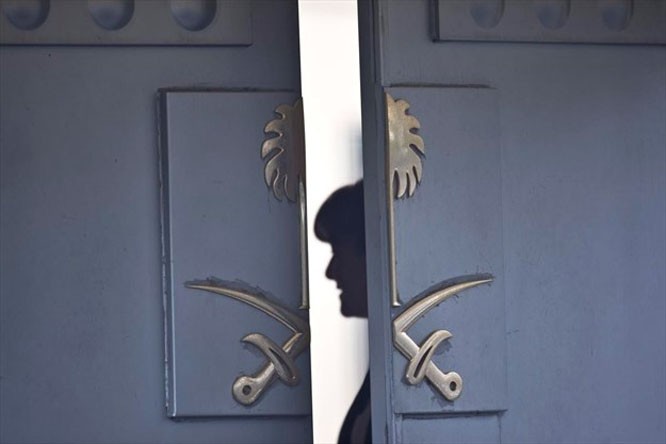

Dear All,
It’s been almost a month since The Washington Post journalist Jamal Khashoggi went into the Saudi consulate in Istanbul and never came out -- alive, at any rate. Saudi Arabia initially denied the Turkish authorities’ allegations that the dissident journalist had been murdered and his body chopped into pieces. First they claimed that a CCTV image showed Khashoggi exiting the consulate, and then finally came up with the bizarre explanation that he had gotten into a ‘fist fight’ shortly after he went in and he was then ‘accidentally killed’ in the affray.
While the world gaped at the absurdity and audacity of the Saudi version of events, the Saudi authorities kept trying to disprove the element of planning and premeditation that the arrival (by private jet) of a Saudi ‘hit squad’ in Istanbul on the morning of the incident suggested. This squad consisted of 15 officials with high security clearance, many associated with the security of the crown prince Mohammad bin Salman (‘MBS’ as he is known in the west) and one high ranking forensic doctor.
Some Turkish authority (unclear who exactly) had released footage of this group at immigration and they had all been identified in the international media, yet despite their seniority and security status, the Saudis’ official narrative described this team as ‘rogue operatives’… KSA effectively decided that these individuals were expendable and pinned all the blame on them, claiming that the orders in this mission had not come from the crown prince.
The Turkish president Racep Tayyip Erdogan has kept the pressure on Saudi Arabia despite suggestions that he would now tone down the rhetoric because of strategic agreements or to avoid a downright admission that the Turks had bugged the consulate. A number of countries pulled out of the ‘Davos in the Desert’ conference in KSA, but many leaders, including the Pakistani prime minister, attended. The US president meanwhile has made fairly ambivalent comments: his criticism seems to be more of the botched and mismanaged manner of the operation rather than of the actual aim of the operation.
As Saudi Arabia tries to cobble together some sort of appropriate response (including the recent bizarre photo-op staged to show Khashoggi’s brother and son shaking hands with the King and MBS), some people have started to try to either ruin the murdered journalist’s reputation or question why so much fuss is being made about one man’s death.
So why is the brutal murder of one journalist by the state of which he was critical so very important? It is important because it is not just a murder, rather it is an attack on freedom of expression and the democratic right to information. It is not just an attack on one person, it is an attack on us all. A journalist symbolises or personifies the right to speak freely, to question authority and to seek the truth. When you murder a journalist, you are sending a powerful warning to others: back off and shut up; don’t ask questions and do not criticise us -- or else…
Journalists are targeted and killed in all sorts of ways: shootings, bombs, mysterious circumstance… But Jamal Khashoggi’s killing was done in such a brutal and heedless manner that it signals the total contempt that the Saudi rulers have for democratic rights and free speech. Khashoggi’s murder is not just another killing planned and executed by a ruling family with a primitive and medieval mindset: it is a warning and a message for journalists. What is important now is that journalists and journalist organisations alike recognise this as not just one murder but as the crushing of free speech.
Remember: an attack on one journalist is an attack on us all.
Best wishes,